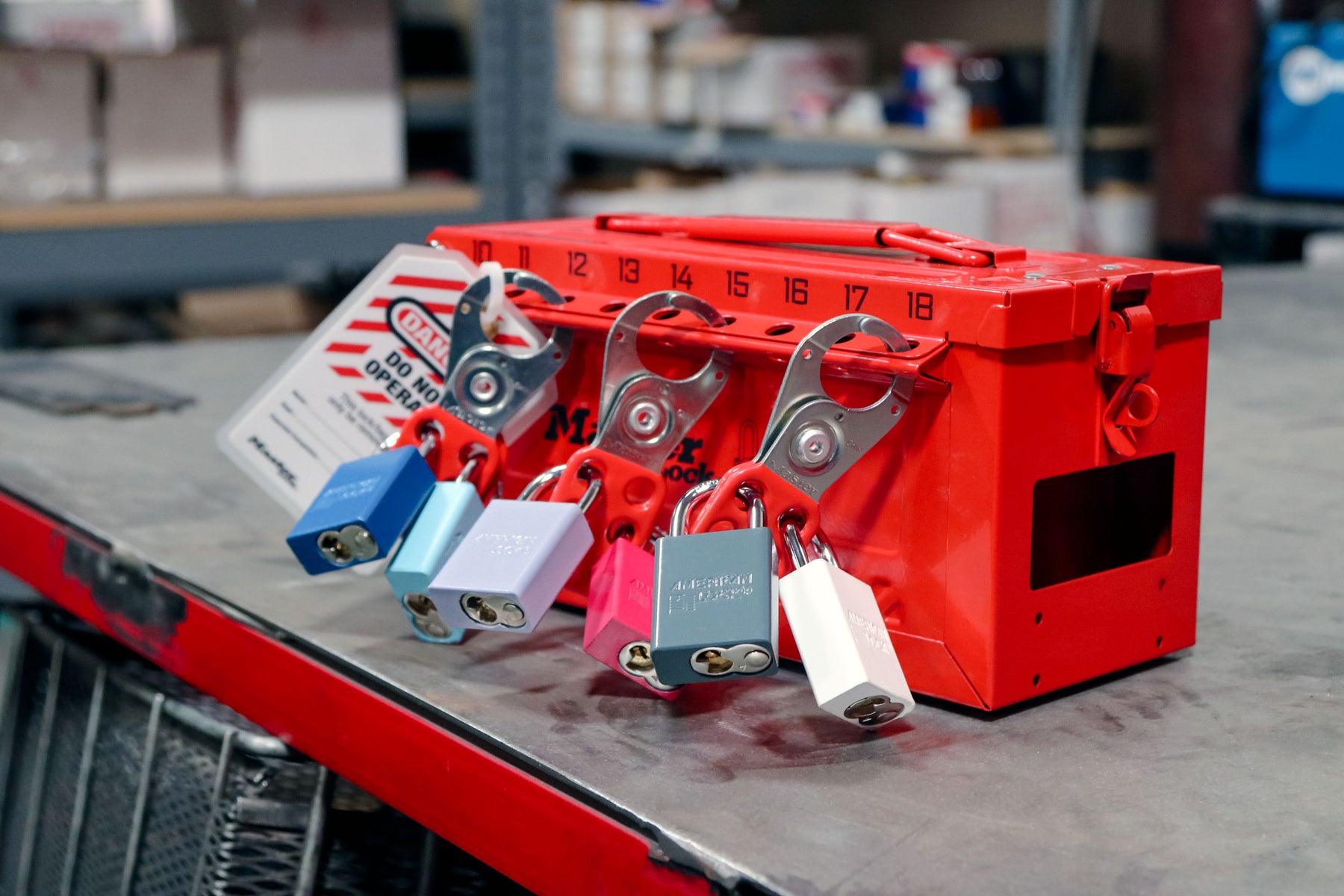
Aluminum vs. Thermoplastic: The Stronger Choice for Lockout Padlocks
Exploring the differences between Thermoplastic and Solid Aluminum locks, this post examines why Solid Aluminum, particularly the A1100 series from American Lock, is often the better choice for safety lockout applications, offering greater durability and security in industrial settings.

Thermoplastic Locks
Thermoplastic locks, like the 410 series from Master Lock, are primarily used for electrical lockout purposes. Their non-conductive and spark-resistant properties make them ideal for environments where electrical safety is a concern.

Solid Aluminum Locks
Solid aluminum locks, such as the A1100 series from American Lock, stand out for their durability and strength. Designed for safety lockout, these locks are not just robust but also lightweight, making them user-friendly for extensive industrial use. Unlike thermoplastic, aluminum withstands harsh conditions and physical impacts more effectively, ensuring a longer lifespan and improved security.
Durability and Security
Solid aluminum locks offer enhanced durability compared to their Thermoplastic counterparts. The A1100 series, for example, is designed to withstand external pressures and environmental factors that would typically compromise less sturdy materials. This makes them an ideal choice for securing valuable assets in industries where physical durability is a necessity.

Application in Safety Lockout
For safety lockout customers, the primary concern is preventing accidental or unauthorized access to hazardous energy sources. Solid Aluminum locks provide a high level of security and reliability, essential for ensuring safety in these critical applications. Their robust construction means they can be used repeatedly in various industrial settings without compromise to the lock's integrity or performance.
While Thermoplastic locks serve a specific purpose in electrical safety, Solid Aluminum locks like those from the A1100 series are the go-to option for a tougher, more durable solution in safety lockout applications. Their superior strength, resilience to environmental conditions, and robust security features make them the best choice for customers prioritizing durability and security.


